For the happiness and well-being of the family
The properties of some indoor plants are capable of influencing our life with their energy. To attract happiness to your home, pay attention to these flowers:
Aloe tree
Also called an agave. Aloe juice has antibacterial and anti-inflammatory properties, as well as boosts immunity and helps against heartburn, which is why it is actively used in traditional medicine.
It has long been believed that the agave protects household members from accidents. Helps to attract good luck, drives away envious people.
Loves well-lit places and moderate watering.
Spathiphyllum
Also called "female happiness". The plant attracts a man to a single woman, helping to find love. And in family relationships, the flower relieves jealousy and strengthens the affection of the spouses, returning passion.
Spathiphyllum is unpretentious, has a pleasant aroma; it is located in a place protected from drafts with diffused light. Also, the plant is often used by decorators who create original designs for living spaces.
Myrtle
It is an excellent gift for newlyweds, as it strengthens relationships and brings peace to the house. In ancient times, myrtle was used to complement the bride's hairstyle; it was believed that he could bestow unfading beauty and eternal youth.
With proper care, myrtle grows up to a meter in height. The best place for a tree is scattered sunlight, because it loves light. Also, myrtle must be sprayed throughout the growing season and do not allow the soil to dry out.
Balsam
People's love for this plant is reflected in signs, which boil down to the positive influence of a flower on a person. Balsam is also called "light", "Vanka wet" and "touchy". He does an excellent job of cleansing the aura in the house, makes men luckier, smoothes out omissions in the family.
It does not require special care, and at the same time it blooms almost all year round. Disinfects the air. Needs moist soil.
Folk omens
Many popular indoor plants have long been overgrown with various superstitions. Believe them or not - it's up to you.
Orchid
There are many conflicting beliefs around this graceful plant: in the West, it is considered an energy vampire, because the flower grows not only in the ground, but also on a tree. An orchid should not be given to weak-tempered people, so that it does not take away the strength of a person.
But in the East, this plant symbolizes nobility and greatness. It brings good luck, protects from evil, makes a woman even more attractive and even improves financial well-being.
The orchid needs diffused light and regular watering at the root. For a stem with flowers, a support is required.
Cactus
There is a belief that only "thick-skinned" people will get along with thorny plants, and emotional personalities will become more aggressive and irritable if they have cacti in the house. It is believed that they provoke quarrels and scandals, as well as expel a man from the family.But for many peoples, cacti have long served as symbols of longevity and health, as well as defenders of the home.
He is called a warrior who protects a person not only from evil forces, but also from theft. Blooming cacti portend happiness, a wedding, or a new addition to the family.
Cacti do not require much maintenance, so they are a great option for those who are rarely at home.
Saintpaulia (violet)
The delicate plant is loved by many flower growers, but has managed to acquire a variety of superstitions. The most common is that the violet prevents a single woman from getting married and also attracts sorrow. But for established married couples, Saintpaulia does not interfere, but on the contrary strengthens the marriage.
In the East, the flower is a symbol of harmony, and in the West they say that it "calms the hearts." Violet blooms in homes where soft, friendly people live and helps to maintain good relations with others.
Loves lighted places without direct sunlight, high levels of humidity and moderate watering. Once in a month and a half, you should clean the leaves from dust by washing them under the tap.
Monstera
An exotic liana with bizarre curly leaves has not gone out of fashion for decades and during this time has given rise to many superstitions by its appearance: it cannot be placed near the bed (it provokes nightmares and suffocation), breaks family relations, sucks the strength out of the owner.
But it consumes no more oxygen than other plants, humidifies the air and absorbs not human energy, but harmful formaldehyde, so monstera is a very useful flower! In China, she is held as a symbol of longevity., given on anniversaries, put in the house as a keeper of the hearth.
Loves warmth and abundant watering, can grow in a shaded place. Leaves must be washed with water and sprayed.
Feng Shui
According to ancient Chinese teachings, plants in a house carry a special energy that has a direct effect on its inhabitants.
Lemon
A lemon tree is a symbol of good luck, and a fruiting plant is a sign of abundance and wealth. It increases the craving for knowledge and activity, therefore it is especially recommended to keep it in the room where children study and play.
Lemon requires an annual transplant, as its root system grows very quickly. Loves diffused lighting, lack of drafts and constantly moist soil.
Fat woman or Crassula
The money tree has round leaves that look like coins, and according to Feng Shui, it promises material prosperity to its owners.
Experts believe that the positive properties of the fat woman are fully revealed if you grow it yourself by placing the pot in the southeastern part of the house.
He loves light very much, is unpretentious to humidity, moderate watering is suitable. Requires a transplant every two years.
Geranium
A flowering aromatic plant belongs to the Yin energy, therefore it gives success in all endeavors. It also soothes and relieves fatigue, so after a hard day's work it is recommended to sit next to her for a while.
The smell of geranium scares away many insects, but experts do not advise placing the flower in the rooms where the inhabitants are most often. Geranium should be placed on a well-lit windowsill, and in winter - supplemented with special phytolamps, otherwise the shoots will stretch out. Does not tolerate stagnant water in the soil.
Azalea
This plant is suitable for creative people in crisis as it gives inspiration, restores vitality and helps to focus on the task at hand. Does not let you lose vigor, is useful for those who find it difficult to get up in the morning. It has a positive effect on the cardiovascular system of the body.
Azaleas are contraindicated in dry air and an abundance of sunlight. Demanding to frequent watering and spraying.
Good for health
These "green heroes" have superpowers to heal, purify the air and relieve depression.
Chlorophytum
An unpretentious houseplant, very popular in Soviet times, fills the apartment with useful substances and absorbs harmful ones. It has been proven by biologists that it can replace an air purifier. With the help of activated carbon poured into the ground, you can enhance this effect, and it will become much easier to breathe.
Chlorophytum loves sunlight and regular watering. Easily propagated by aerial roots.
Nephrolepis
A fern variety that adapts perfectly to home conditions. It is often found in childcare facilities and hospitals. It successfully removes dust from the air. It is actively used in folk medicine, and sometimes in cooking.
Dislikes dry air and bright sun, requires moderate watering. If the humidity is below 45%, it should be sprayed with water.
Ficus
Removes toxins and harmful volatiles, suppresses viral microorganisms, humidifies the air and reduces dust. It is believed that its owners are less susceptible to depression and less likely to get sick. It is widely used in traditional medicine.
Ficus leaves must be wiped with a damp sponge. Placed in well-lit areas. Loves high humidity, showers and spraying. Requires an annual transplant.
Asparagus
Fills the air with special components that accelerate tissue healing. Eliminates heavy metals and harmful microorganisms. It is believed that asparagus prolongs youthfulness by increasing the elasticity of the skin. Useful for those prone to lung diseases.
The soil of the houseplant must be moist. He loves good lighting, spraying, in dry air sheds yellowed leaves-needles.
Plants certainly influence our life, beautifying it and bringing harmony. However, it is worth remembering that a lot depends on ourselves, including the mood and the favorable atmosphere in the house.

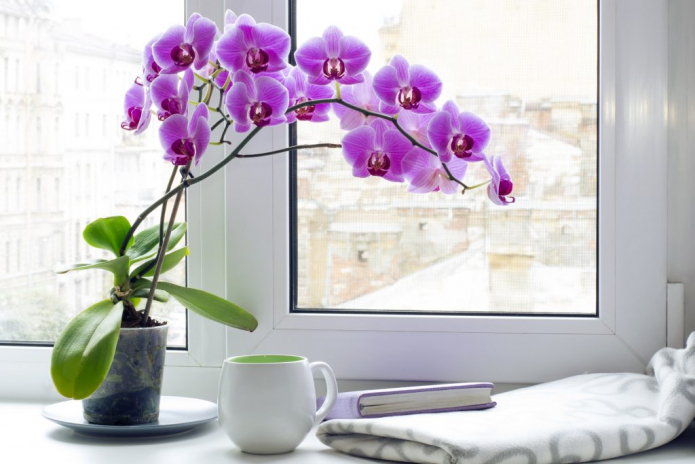
 10 practical tips for arranging a small kitchen in the country
10 practical tips for arranging a small kitchen in the country
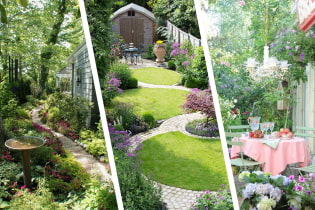 12 simple ideas for a small garden that will make it visually spacious
12 simple ideas for a small garden that will make it visually spacious
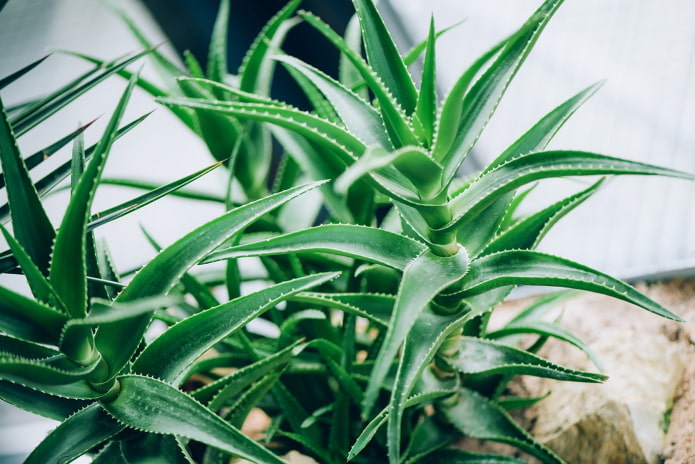
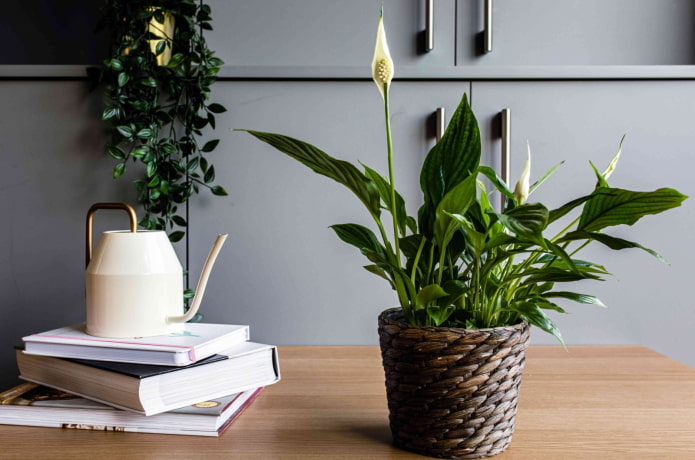
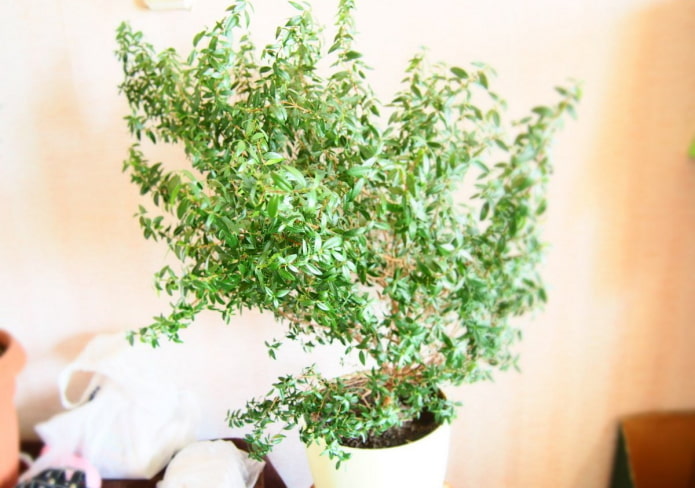
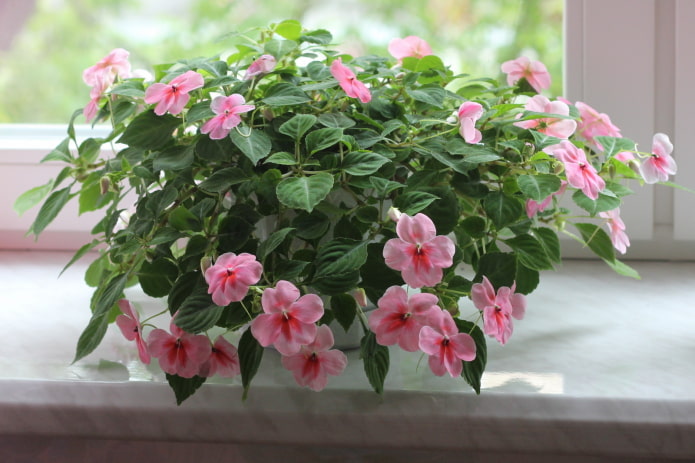
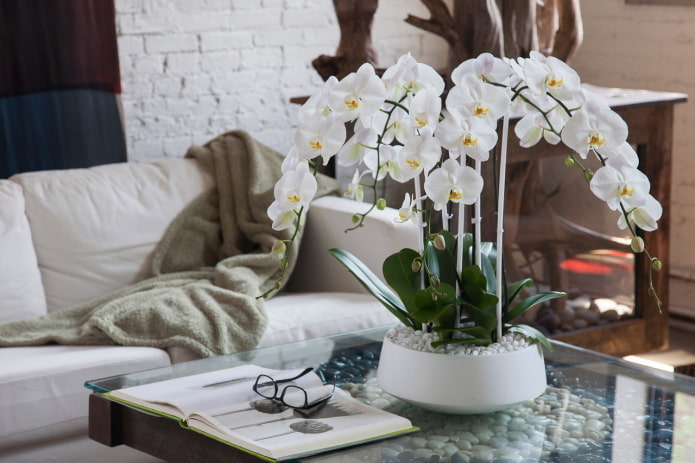
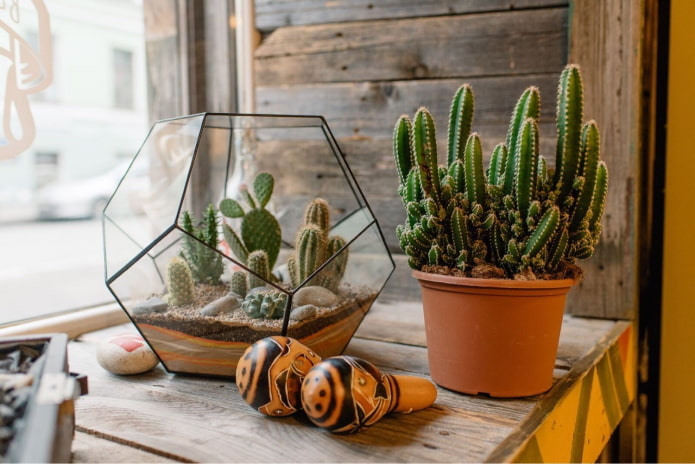
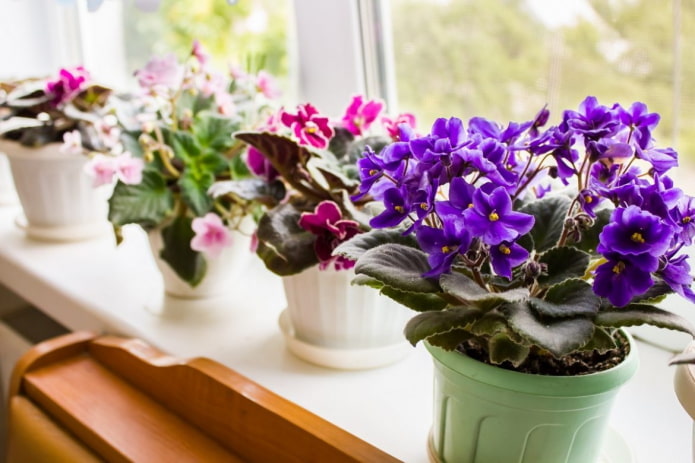
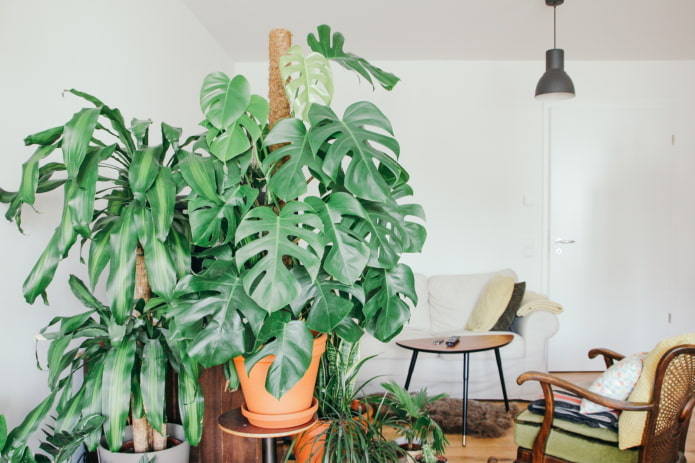
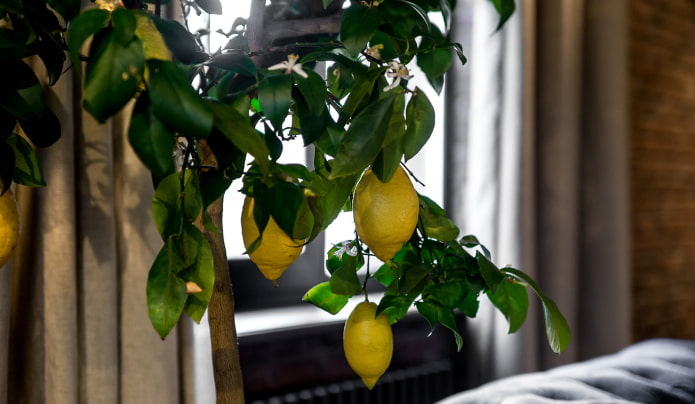
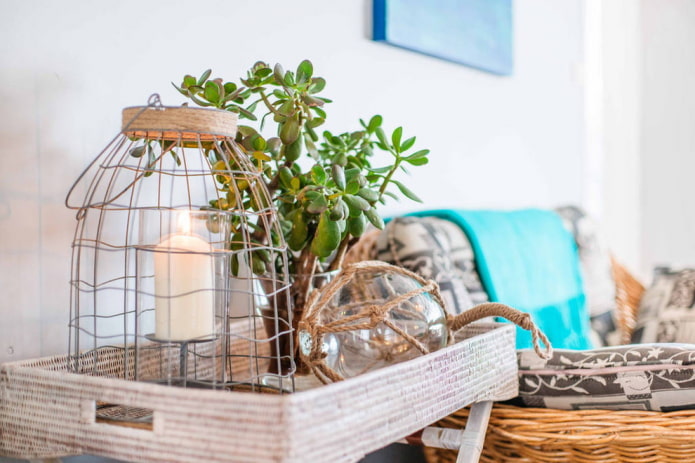
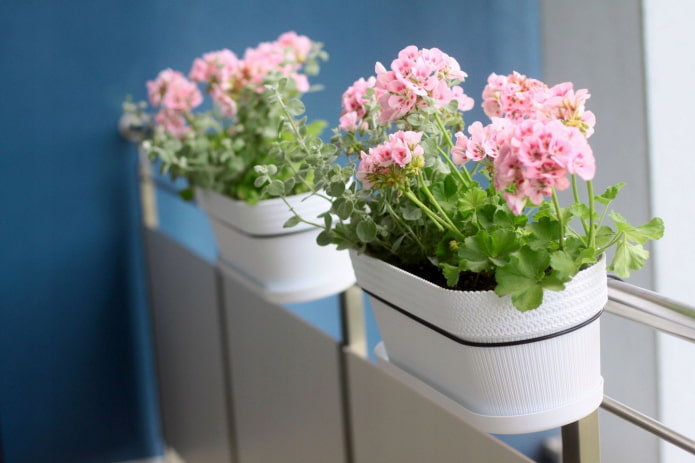
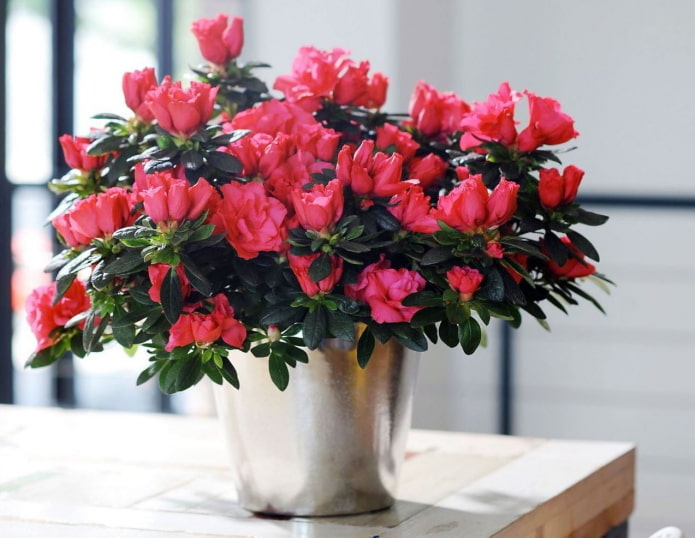
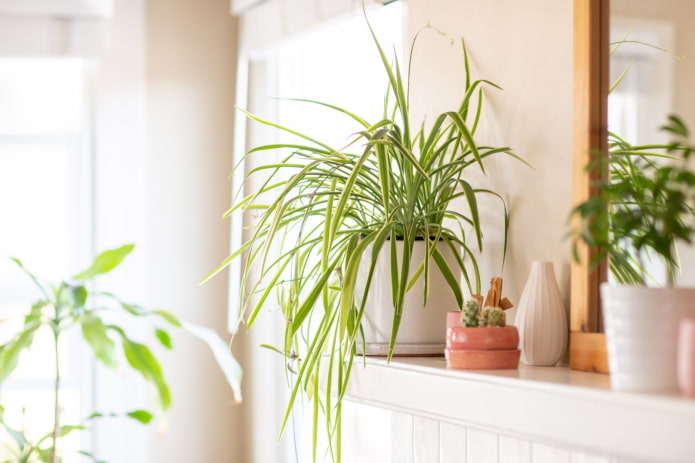
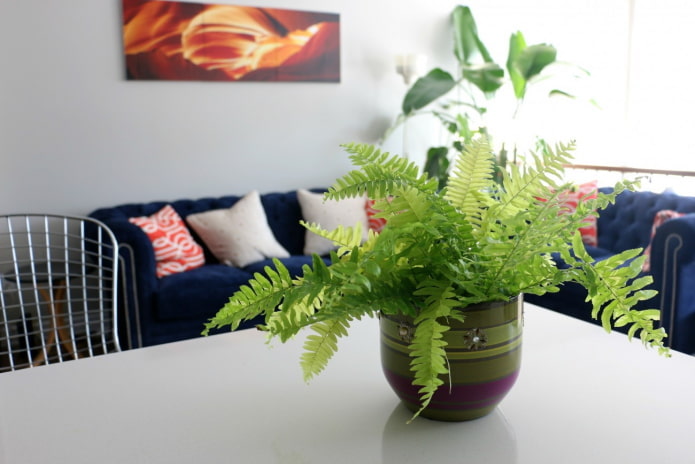
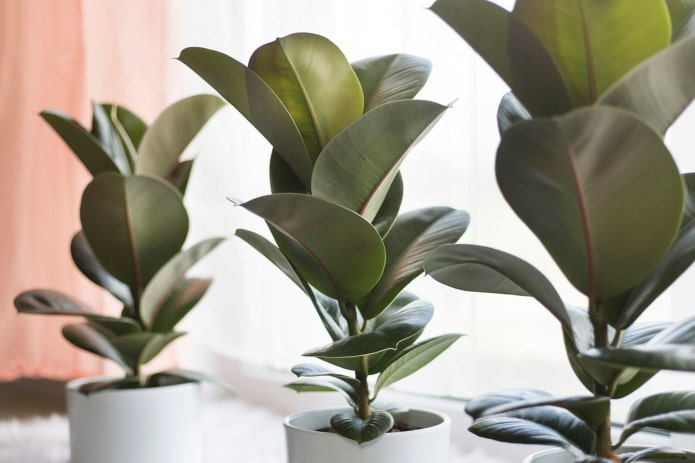
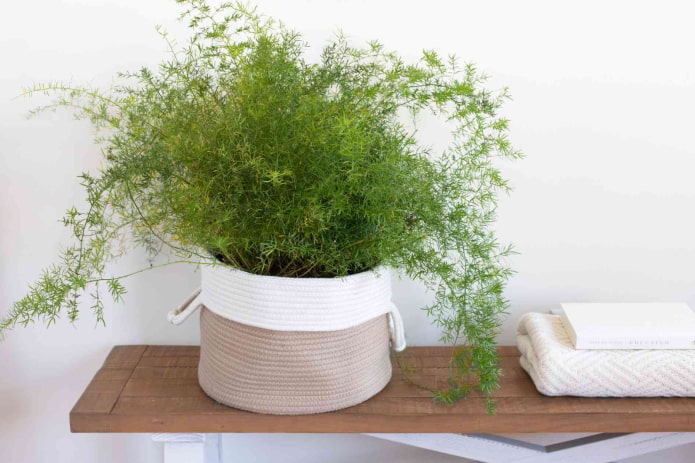
 13 bad habits a good housewife shouldn't have
13 bad habits a good housewife shouldn't have 24/7 home cleanliness - 4 secrets for the perfect housewife
24/7 home cleanliness - 4 secrets for the perfect housewife 6 hotels in Sochi that will give odds to the promoted foreign hotels
6 hotels in Sochi that will give odds to the promoted foreign hotels Top 10 interior design trends 2020
Top 10 interior design trends 2020 Rating of cheap TVs with Smart-TV
Rating of cheap TVs with Smart-TV New Year's LED garlands on AliExpress - we disassemble while it's hot, so that it's bright at home
New Year's LED garlands on AliExpress - we disassemble while it's hot, so that it's bright at home